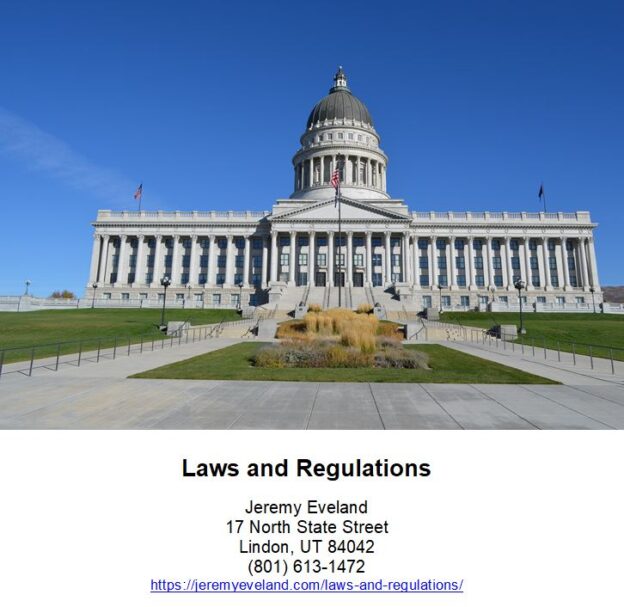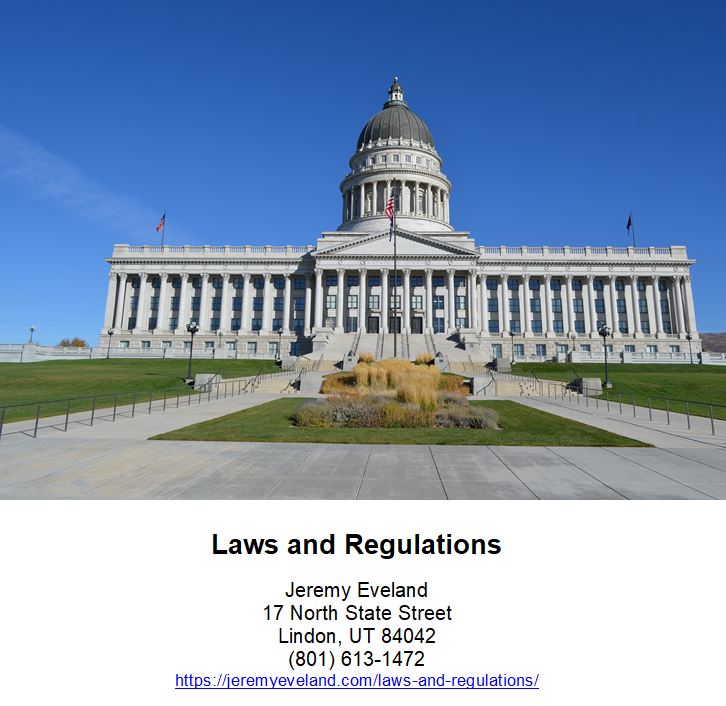Creating a charitable trust can be a complex process. It requires careful consideration of state and federal laws, as well as professional guidance to ensure that the trust is in line with the grantor’s wishes and objectives. This article will provide an overview of charitable estate planning trusts in Utah and discuss some of the key considerations and legal requirements associated with such trusts.
Charitable trusts are a type of estate planning tool that allows individuals to provide for the future of their charitable interests. They may be used to fund a variety of charitable activities, including endowments, scholarships, and donations. A charitable trust offers tax advantages to the grantor, because any contributions made to the trust are tax deductible. Furthermore, any income that the trust generates is tax-free.
In order to create a charitable trust in Utah, the grantor must meet certain requirements. Under Utah Code Ann. §§ 75-7-1001 et seq., the grantor must be at least eighteen years of age, have testamentary capacity, and have the ability to make dispositions of property for charitable purposes. The trust must also be in writing and must meet the requirements of the Utah Uniform Trust Code.
Establishing A Charitable Trust
A charitable trust is a trust created for charitable purposes, either by a settlor or by a court. A settlor is the person who creates the trust, gives it certain powers and outlines its purpose. Establishing a charitable trust requires careful consideration of the purpose of the trust, the intended beneficiaries, and the tax implications. To create a charitable trust, the settlor must declare the trust and its purpose in a document, and must determine the beneficiaries of the trust. The trust can be funded with cash, securities, real estate, or other property. The settlor must also determine how the trust will be managed, who will serve as the trustee, and how the trustee will be compensated. The trust must be created in accordance with the laws of the state in which it is established and must be registered with the appropriate local government agency. Additionally, the settlor should consult a qualified attorney and accountant to ensure that the trust complies with all applicable state and federal laws. Establishing a charitable trust can provide substantial tax benefits to both the trust and its beneficiaries, and can be a powerful tool for promoting charitable giving.
Tax Benefits of Charitable Trusts
Charitable trusts are a special legal mechanism that can be used to provide tax benefits while still allowing the donor to support their favorite causes. A charitable trust is a trust that is created to benefit a charitable organization or cause. The trust is managed and administered by a trustee, who has the authority to make sure that the charitable organization or cause receives the funds and assets that are in the trust. The trust is structured so that the donor can receive tax benefits while still providing support to the charitable organization. The donor can receive a tax deduction for the value of the assets that are placed into the trust, and the trust also receives certain tax benefits, such as not having to pay taxes on any income that it earns from investments or other activities. Additionally, the trust may be able to receive certain tax exemptions from state and local taxes. These tax benefits can make charitable trusts an attractive option for those who want to support a charitable organization or cause, while also taking advantage of tax benefits.
Managing Assets in a Charitable Trust
Managing assets in a charitable trust requires the trustee to act in good faith and with the utmost care, skill, and diligence. The trustee must act in a manner that is consistent with the terms of the trust and in the best interests of the trust beneficiaries. The trustee must also ensure that the trust assets are invested prudently and managed in accordance with applicable laws and regulations. When making decisions regarding trust assets, the trustee must consider the trust’s purpose, the interests of the beneficiaries, the trust’s financial condition, the applicable laws and regulations, and the trust’s investment objectives. The trustee must also consider the potential tax implications of any decisions the trustee makes. The trustee must also keep accurate and complete records of the trust assets and transactions, and must ensure that any income generated by the trust is properly accounted for and reported to relevant authorities. Finally, the trustee must ensure that the trust assets are distributed in accordance with the terms of the trust and the trust beneficiaries’ best interests.
Types of Charitable Trusts
Charitable trusts are a form of trust used to support charitable activities. These trusts are established to provide financial support to charitable organizations, such as those dedicated to education, healthcare, and other social welfare causes. There are several types of charitable trusts, each with their own unique benefits and restrictions.
The most common type of charitable trust is a charitable remainder trust, which provides for the transfer of assets to a charity upon the death of the donor. This type of trust typically provides a lifetime income for the donor and their beneficiaries, while also providing a tax deduction for the donor. Other types of charitable trusts include charitable lead trusts, which provide for the payment of a specified amount of income or principal to a charity for a specified period of time, and pooled income funds, which allow donors to contribute to a fund that is managed by a charity for the benefit of its members.
Charitable trusts are generally subject to specific regulations and rules, such as the requirement to use the trust assets only for charitable purposes. Additionally, charitable trusts may be subject to probate and estate taxes, depending on the type of trust and the state in which it is created. It is important to consult with a qualified attorney to ensure that all of the requirements are met and that the trust is properly established and administered.
Distributing Funds From a Charitable Trust
Distributing funds from a charitable trust can be a complex process depending on the size of the fund and the purpose for which it was established. In order to ensure that the trust is being managed in accordance with the law, trustees should consult with an attorney to ensure that the trust is properly drafted and administered. The trustee should also be aware of the applicable state laws regarding charitable trusts and how they apply to the trust. When distributing funds from the trust, trustees must ensure that the funds are used for their intended purpose and in a manner that complies with the terms of the trust. Additionally, trustees should be aware of any restrictions the trust may have regarding the use of the funds and any applicable tax implications. Finally, trustees must ensure that all of the funds distributed from the trust are properly documented and accounted for and that the trust has sufficient funds to fulfill its charitable purpose. By following these steps and consulting with an attorney, trustees can ensure that the funds from the trust are used in accordance with the law and according to the terms of the trust.
The Utah Uniform Trust Code lays out the legal requirements for creating a charitable trust in the state. Under the code, the trust must include a written statement of the charitable purpose, the name of the beneficiary, and the methods by which the trust assets will be managed and distributed. The trust must also include a provision for the trust’s duration and any restrictions on the trust’s termination.
Once the trust is established, it is important to ensure that it is properly funded. The trust must have sufficient assets to fulfill its charitable purpose. In addition, the trust will need to be managed in accordance with the terms of the trust document. This includes making sure that the trust’s assets are invested in a prudent manner and that the trust is managed in compliance with applicable state and federal laws.
The trust must also be subject to the oversight of a trustee. The trustee must be a qualified individual or entity that is capable of managing the trust in accordance with the terms of the trust document. In addition, the trustee must act in a fiduciary capacity and must be approved by the court.
When the trust is created, it is important to consider the tax implications of the trust. Under the Internal Revenue Code, charitable trusts are generally exempt from federal income taxation. However, some states, including Utah, impose a state income tax on charitable trusts. It is important to consult with a tax professional to ensure that the trust meets all applicable state and federal tax requirements.
In addition to the tax implications, it is important to consider the legal implications of the trust. Charitable trusts are subject to the oversight of the state’s attorney general, and the trust must be managed in accordance with the terms of the trust document. In Utah, any disputes concerning the trust must be decided by the state’s court system.
Finally, it is important to consider the impact of the trust on the grantor’s estate. Depending on the terms of the trust document, the grantor’s estate may be liable for any taxes due on the trust. Furthermore, the grantor’s estate may be subject to any creditors’ claims against the trust. It is important to consult with an estate planning professional to ensure that the grantor’s estate is properly protected.
In conclusion, charitable estate planning trusts in Utah can be a powerful tool for providing for the future of one’s charitable interests. However, it is important to understand the legal and tax implications of such trusts and to engage the services of a qualified professional to ensure that the trust is established and managed in accordance with the grantor’s wishes.
Areas We Serve
We serve individuals and businesses in the following locations:
Salt Lake City Utah
West Valley City Utah
Provo Utah
West Jordan Utah
Orem Utah
Sandy Utah
Ogden Utah
St. George Utah
Layton Utah
South Jordan Utah
Lehi Utah
Millcreek Utah
Taylorsville Utah
Logan Utah
Murray Utah
Draper Utah
Bountiful Utah
Riverton Utah
Herriman Utah
Spanish Fork Utah
Roy Utah
Pleasant Grove Utah
Kearns Utah
Tooele Utah
Cottonwood Heights Utah
Midvale Utah
Springville Utah
Eagle Mountain Utah
Cedar City Utah
Kaysville Utah
Clearfield Utah
Holladay Utah
American Fork Utah
Syracuse Utah
Saratoga Springs Utah
Magna Utah
Washington Utah
South Salt Lake Utah
Farmington Utah
Clinton Utah
North Salt Lake Utah
Payson Utah
North Ogden Utah
Brigham City Utah
Highland Utah
Centerville Utah
Hurricane Utah
South Ogden Utah
Heber Utah
West Haven Utah
Bluffdale Utah
Santaquin Utah
Smithfield Utah
Woods Cross Utah
Grantsville Utah
Lindon Utah
North Logan Utah
West Point Utah
Vernal Utah
Alpine Utah
Cedar Hills Utah
Pleasant View Utah
Mapleton Utah
Stansbury Par Utah
Washington Terrace Utah
Riverdale Utah
Hooper Utah
Tremonton Utah
Ivins Utah
Park City Utah
Price Utah
Hyrum Utah
Summit Park Utah
Salem Utah
Richfield Utah
Santa Clara Utah
Providence Utah
South Weber Utah
Vineyard Utah
Ephraim Utah
Roosevelt Utah
Farr West Utah
Plain City Utah
Nibley Utah
Enoch Utah
Harrisville Utah
Snyderville Utah
Fruit Heights Utah
Nephi Utah
White City Utah
West Bountiful Utah
Sunset Utah
Moab Utah
Midway Utah
Perry Utah
Kanab Utah
Hyde Park Utah
Silver Summit Utah
La Verkin Utah
Morgan Utah
Charitable Estate Planning Trusts Consultation
When you need help with Charitable Estate Planning Trusts call Jeremy D. Eveland, MBA, JD (801) 613-1472 for a consultation.
Jeremy Eveland
17 North State Street
Lindon UT 84042
(801) 613-1472
Related Posts
Business Lawyer West Valley City Utah
Business Succession Lawyer Eagle Mountain Utah
Estate Planning Lawyer West Jordan Utah
Business Acquisition Lawyer Sandy Utah
Estate Planning Lawyer Orem Utah
















